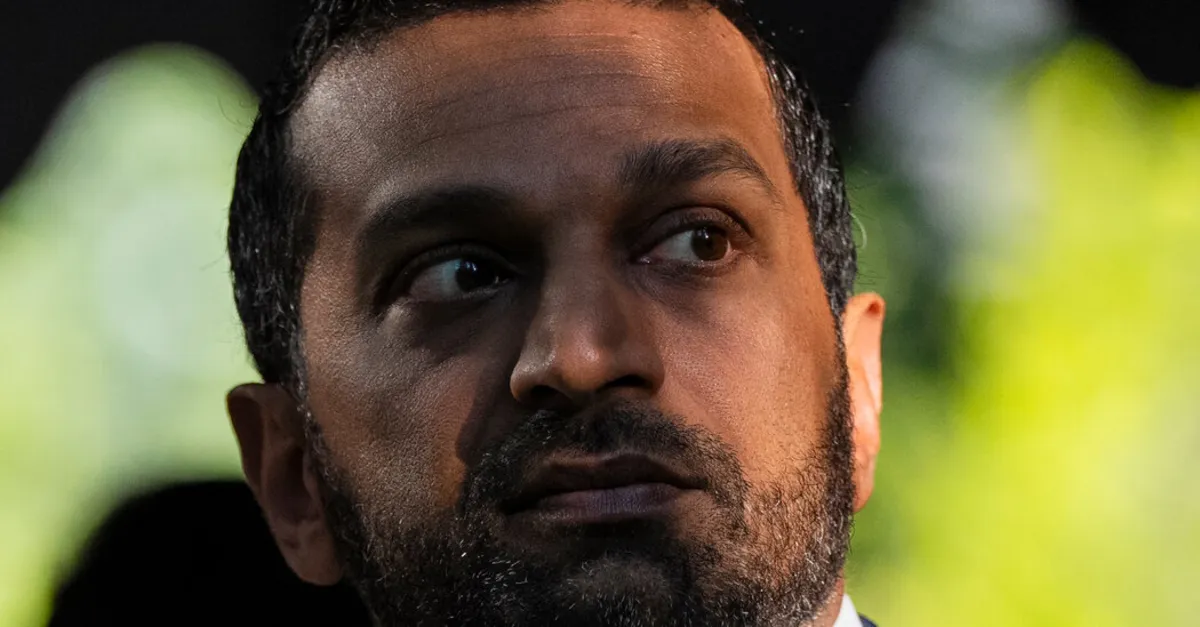
On Thursday morning, just a day after the F.B.I. director Kash Patel hastily suggested that the suspect in the shooting of Charlie Kirk was in custody, he convened an online meeting with 200 agents nationwide to discuss the ongoing manhunt. The atmosphere was tense as both Mr. Patel and his deputy, Dan Bongino, expressed the immense pressure they were under to apprehend the individual responsible for Mr. Kirk’s tragic shooting. Their fervent urgency during the call suggested to some participants a deeper motive: a need to demonstrate their competency in handling such critical investigations.
During the meeting, Mr. Patel did not hesitate to call out his subordinates for failing to provide timely information, particularly criticizing agents in Salt Lake City for waiting nearly 12 hours before presenting him with a photo of the suspected shooter. Reports indicate that he expressed his frustration by stating he would not tolerate any further “Mickey Mouse operations.” This remark was notable as it was one of the few occasions during the call where he refrained from using profanity, according to sources familiar with the exchange.
The shooting of Mr. Kirk on Wednesday not only presents a critical challenge for the agents racing against time to locate the shooter but also serves as a significant leadership test for Mr. Patel. His swift declarations regarding the investigation have reignited concerns about his experience level, his fixation on social media, and the purge of seasoned F.B.I. investigators, as noted by current and former officials who spoke under the condition of anonymity. How Mr. Patel navigates the repercussions of his early missteps in the Kirk investigation remains uncertain.
Mr. Patel's actions have drawn criticism and scrutiny from within the F.B.I. workforce, as well as from senior officials at the Justice Department, who believe his behavior has undermined public trust in the bureau. Critics have also raised alarms regarding a wave of firings and forced retirements that began before Mr. Patel's confirmation in February and continued post-confirmation. They argue that such actions could hinder the bureau’s ability to manage intricate investigations like the one surrounding Mr. Kirk's case.
Hours before the tragic incident where Mr. Kirk was shot in the neck at Utah Valley University, three former high-ranking F.B.I. officials—Brian J. Driscoll Jr., Steven J. Jensen, and Spencer L. Evans—filed a lawsuit against Mr. Patel and Attorney General Pam Bondi, accusing them of illegal termination. The departure of Mr. Driscoll, who served as interim director until Mr. Patel was confirmed, is seen as a particularly damaging loss. His experience and stability were crucial in maintaining morale within the bureau, especially for agents facing potential firings or demotions under political appointees.
The impact of leadership changes extends to the Kirk investigation specifically. Earlier this summer, Mr. Patel’s team compelled the retirement of Mehtab Syed, a respected former counterterrorism agent appointed to lead the Salt Lake City field office, for reasons that have not been clarified. Lauren C. Anderson, a former F.B.I. agent with senior leadership experience, emphasized that losing Ms. Syed’s expertise at such a critical time is a severe setback for both the bureau and the community it serves.
A source close to Mr. Patel stated that his actions are aimed at enhancing coordination among agents and that he appreciates their efforts in the ongoing investigation. To demonstrate this commitment, Mr. Patel and Mr. Bongino traveled to Utah on Thursday to personally oversee the case.
During an evening news conference, Mr. Patel provided few updates about the investigation. On Wednesday evening, as the nation reacted to Mr. Kirk's shooting, Mr. Patel, who has a background in podcasting, shared a message on his official X account, claiming that the suspect was in custody. This message, which he posted without prior consultation with his leadership team, contradicted information shared by Utah officials just moments earlier.
Shortly after, Mr. Patel was forced to clarify that the individual in custody had been released after questioning and that the investigation was still ongoing. This miscommunication raised eyebrows, particularly given the F.B.I.'s traditionally reserved approach to public communications regarding ongoing investigations.
Despite the apparent missteps, there is no indication that Mr. Patel's position is in jeopardy. His close ties to influential figures, including a powerful aide to former President Trump, may afford him some protection. Meanwhile, Mr. Bongino has also managed to navigate previous controversies concerning his calls for Attorney General Bondi's resignation over her handling of sensitive files.
Recognizing the need for more experienced leadership, the White House appointed Andrew Bailey, the attorney general of Missouri, as the deputy director of the F.B.I., indicating a move to bolster the bureau’s leadership structure. Mr. Bailey commenced his duties this week.
Approximately 22 hours after the shooting incident, the investigation gained momentum as the police and the F.B.I. released security footage of a suspect wearing sunglasses and a baseball cap, along with details about the bolt-action rifle and ammunition discovered near the university campus. The F.B.I. has made substantial advancements in utilizing technology, allowing for the integration of video clips with facial recognition software to enhance their investigative efforts. Robert Bohls, the special agent in charge in Salt Lake City, expressed confidence in the bureau's ability to identify the suspect swiftly and stated that they would appeal to the public for assistance if necessary.